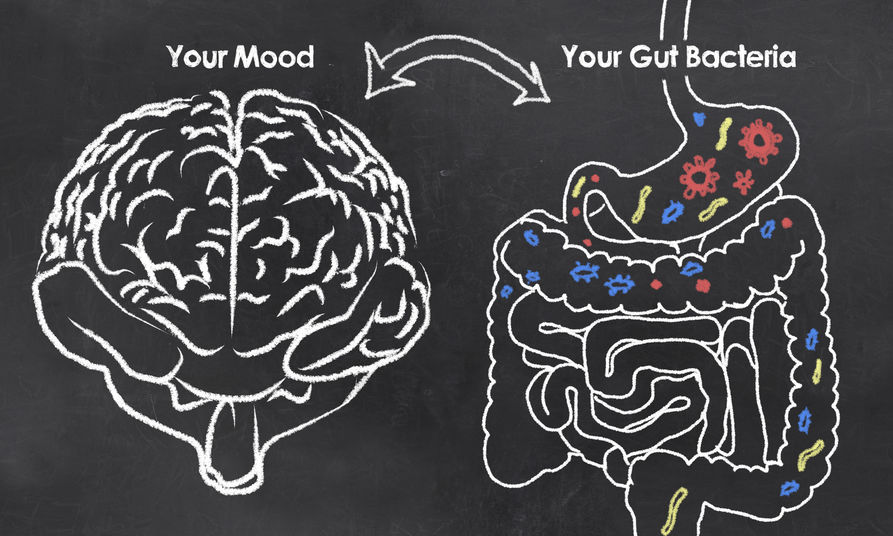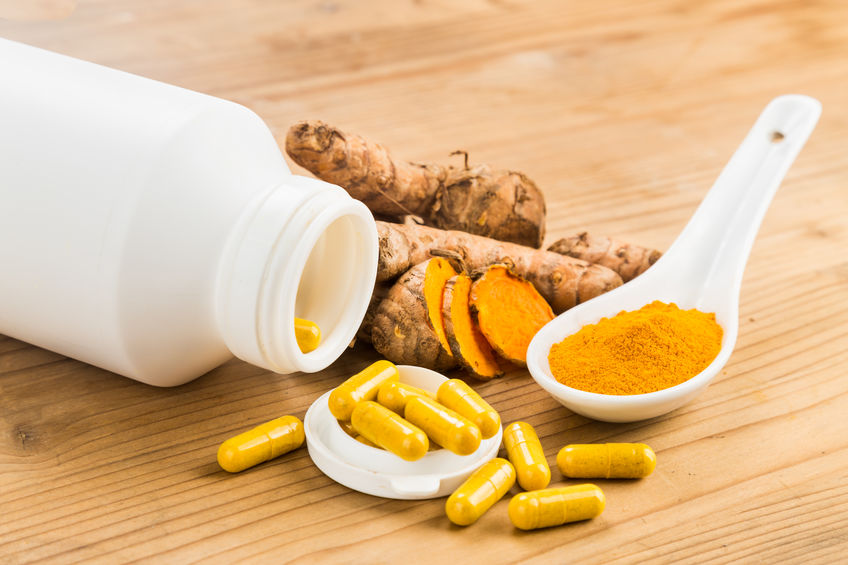The body is made up of a complex network of various chain reactions and pathways, some of which scientists are still trying to decode today. While some things are not fully understood about the body, there is a lot of evidence to show that what we eat can have a significant effect on the inner workings of the brain and our mood.
Diet alone can not treat certain mood disorders such as anxiety or depression, but there is a link between the two. There are subtle clues that indicate that a proper diet does help to ease a few mood disorder symptoms when combined with medicinal treatments and other forms of therapy.
The Link Between The Gut And Brain
It is impossible to comprehend exactly how food impacts our moods, but researchers have pegged it down to a few possible reasons, two of which are extremely plausible – hormones and inflammation.
Our brains are constantly working – maneuvering every movement our joints make, regulating our heart rate, and controlling every single one of our senses, even when we are in a deep sleep. For the brain to continuously function, it needs fuel in the form of various vitamins and minerals, which is sourced directly from the foods we eat. But not all foods are created equal.
Some foods like vegetables, fruits, and whole grains contain essential nutrients and antioxidants that preserve and protect our grey matter, while other foods like sugar and processed carbohydrates are filled with additives such as Monosodium Glutamate (MSG) that contribute towards chronic inflammation and oxidative stress. When there is a surplus of these free radicals and inflammatory cells due to poor nutrition, it causes damage to existing brain cells and can lead to impaired cognitive function, which also worsens symptoms of anxiety and depression.
Along with damaging inflammatory cells, hormones also play a part in mood and food.

The gastrointestinal tract is responsible for producing 95% of the body’s total serotonin. Serotonin is a hormone that is directly involved in regulating important functions like your sleep cycle, moods, and appetite. The gastrointestinal tract is a complex system that is lined with millions of cells, nerves, and neurons, which aids in digestion and the production of various neurotransmitters like serotonin.
The gastrointestinal tract also has its own microbiome environment that activates various pathways and responses directly to the brain. This environment is made up of billions of beneficial bacteria that are crucial for survival. Without these beneficial bacteria, we wouldn’t be able to digest and absorb the nutrients from our food efficiently. They play a vital role in keeping toxins out and protecting the gastrointestinal lining from harmful invaders that could cause infection and other diseases.
When we eat highly refined foods or foods that are high in sugar, the microbiome environment becomes imbalanced, meaning that more harmful bacteria begin to multiply within the gut. When that happens, the various neurons, cells, and nerves do not function properly, which affects everything from digestion and inflammation down to how much serotonin is produced, and as a result, affects your mood, sleep cycles, and appetite.
What Foods Should You Be Eating To Lighten Your Mood?
Have you ever noticed how you crave unhealthy foods when you are feeling moody or stressed? Pizza, ice cream, practically anything that has carbohydrates and is comforting? The reason this happens is that our brains need even more fuel when it is operating in ‘fight or flight’ mode. Your brain automatically tells you that it needs a quick burst of energy to fight off the danger it is sensing, which is why you start to crave sugary carbohydrate-rich foods.
The body is able to break down and utilize carbs and sugar as a fuel faster than any other food source. But giving in to these cravings every time you feel blue only results in a cycle of poor gut health and serotonin production, and even more inflammation, which ultimately, leads to worsened symptoms of anxiety and other mood disorders.
If you want to break this cycle, these are the foods you should be reaching for instead:
Berries
Despite their size, fresh berries pack quite a punch when it comes to fighting off inflammation and neutralizing oxidative damage due to their antioxidant content. Additionally, berries are also fantastic for brightening your mood and curbing symptoms associated with depression.
While scientists are not exactly sure how berries alter the mood, it is believed that it is due to the anthocyanins – a plant compound that gives berries their deep blue and purple pigment.
The research shows that there is a strong link between anthocyanin-rich diets and a reduced risk of developing symptoms associated with depression. According to the study, these colorful plant compounds can reduce the risk by up to 39%.
Oily Fish
Oily fish, also known as fatty fish, is the type of brain food you want to put on your plate when mood swings strike. Fatty fish such as tuna, mackerel, sardines, and salmon are rich in essential Omega 3 fatty acids – docosahexaenoic acid (DHA) and eicosapentaenoic acid (EPA). Both these types of Omega 3 fatty acids play a key role in the development and function of our grey matter.
In addition to boosting cognitive function, Omega 3 has a direct impact on various mood molecules within the brain, which scientists believe helps alleviate depression and symptoms associated with other mood disorders.
Turmeric

Turmeric is one of the most promising natural aids when it comes to mood and depression. The compounds in turmeric known as curcumin have a significant impact on a specific growth hormone in the brain – brain-derived neurotrophic factor (BDNF). According to research, there is a strong link between depression and low levels of BDNF.
Turmeric helps to alleviate symptoms of depression by increasing the production of the BDNF growth hormone and other hormones associated with the brain’s pleasure and reward centers such as dopamine and serotonin. When compared to Prozac, turmeric proves to be just as effective at combating symptoms associated with mood disorders.
While turmeric may give curry dishes a kick, our bodies are not able to fully absorb and utilize the various nutrients without the help of alkaloids found in black pepper known as piperine. If you want to feel the full effects of the curcumin compounds, it’s best to take a high-quality supplement like Turmeric MD™, which contains 95% curcumin as well as Bioperine® for increased absorption and bioavailability by up to 2000%.
Dark Chocolate
There is no doubt that the creamy and heavenly taste of dark chocolate is enough to put anyone in a good mood. It may not be as sweet as milk chocolate but it is a much healthier option that not only provides you with a quick boost of energy but also helps to fight inflammation, increase blood flow to the brain, and regulate moods due to the physiological effect of the compounds found in dark chocolate. Scientists believe that the natural plant compounds found in dark chocolate like N-acylethanolamine share a similar chemical structure with cannabinoids, which is known for its mood-boosting properties.
When your spirits need a lift, all you need is a block or two of 70% dark chocolate to get those feel-good endorphins and hormones flowing again.

